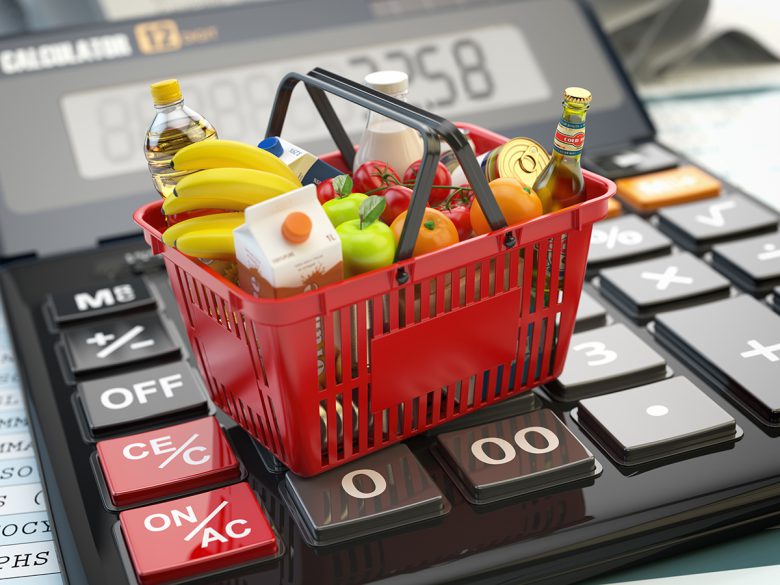Savings on your grocery bill can really add up over the course of a year. And with so much food thrown away, you could also save hundreds of dollars or more each year by finding ways to cut food wastage. Use these easy hacks to shop smarter, waste less, and save more with every supermarket trip, and you could be well on your way to saving up for your new car, holiday or home deposit.
1. Plan meals around weekly catalogue specials and discounts
Planning your meals is one of the best ways to get on top of your grocery budget, but you can take it to the next level by checking the weekly catalogue first. Check what’s on sale and make a list of ingredients you have to work with. Decide on the recipes you’ll make and then work out a shopping list. Buy only things on this list.
Look out for special discounts and discount codes, like codes for shopping online or for buying bulk. You could plan your meals around these as well. Remember, if you have a plan, you’re probably less likely to eat out and buy convenience meals.
2. Do a regular stocktake
Do a regular stocktake of what your household eats, what ends up getting tossed out, and what you have in the pantry and fridge. Work out when you need to buy and only purchase what you need. Once a week, do a leftovers-based meal to clear out the fridge and freezer and to use up near-expiry items.
3. Shop at the end of the day
Shop at the end of the day since this is the best time to catch discounts. Perishable goods such as fruit, veggies, and bakery items are more likely to be refreshed at the end of the day, so you’re likely to snap up some good bargains.
4. Shop clearance and homebrand
Look out for clearance goods and buy homebrand or own-brand items. Own-brand items often have very similar ingredients to branded goods and they might even be better. Shop at local grocery clearance stores such as Not Quite Right or NQR where you could save more by buying excess stock, discontinued lines and cancelled supermarket orders. Of course, only buy discounted goods if you’ll be using them.
5. Buy specials in bulk
Things like paper towels, toilet paper, and tinned goods can be kept for months. If you see a good deal on these, buy them up in bulkand save more.
6. Cook in bulk and freeze
If there’s a special going on, buy double amounts. Use the item for freezer-friendly meals like pasta sauce and cook in bulk to freeze. Then you’ll have a range of ready-to-go meals for when you don’t feel like cooking. Get in the habit of cooking extra portions and freezing so you can defrost for a quick family dinner. Or you could stretch it over two meals by turning the leftovers into lunches for the next day.
7. Shop on Monday or Tuesday
Monday and Tuesday are the quietest days and so they’re great days to avoid rushing around in a crowded supermarket and making hasty purchase decisions. Wednesdays however are also a good day as it’s when the new weekly specials go live. Remember to shop on a full stomach as you tend to buy more when you’re hungry.
8. Prep your own meals using in-season produce
Avoid convenience meals as they’re more expensive. Instead, cook from scratch, and cook in bulk and freeze for extra convenience. For your meals, buy ingredients that are in season and save extra.
9. Use unit pricing to compare
Unit pricing rather than product price gives you the best basis for comparison. For example, check the price per kilo rather than per apple or per bag. Write down your regular shopping items – from bread and meat to veggies and fruit – and track how much you’re paying per unit so you can compare easily.
10. Go meatless at least once a week
If you eat meat, you likely pay more for food than someone who doesn’t eat meat. Try to have at least one meatless meal each week. Beans, lentils, peas, or eggs can be just as nutritious as meat – without the bigger price tag. By going vegetarian part time, you will end up eating more veggies and fruit as well.
Groceries make up a big part of household expenses, so saving money on your groceries could go a long way to keeping your budget out of the red. Cutting food wastage alone could save you over $1,000 each year. Other easy hacks like meal planning, cooking in bulk and choosing own-brand items could also help you save more. Think of the ways this money could be better spent – a new car, a holiday, or extra repayments on the mortgage – for extra motivation to save more at the supermarket.
If you are planning big shopping because of the family reunion or special event like Christmas and you budget is pretty low, you can always use a personal loan.


